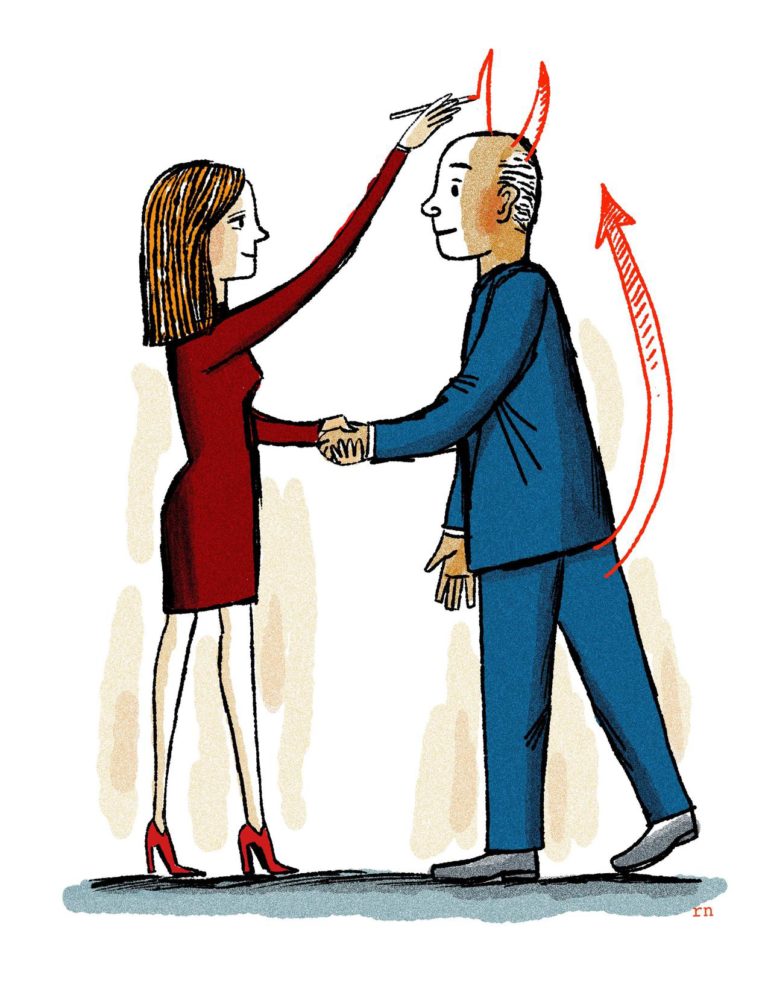

Don’t vent or take revenge; be honest and respectful in the exit interview
Emotions run high during a last day on a job. You want to vent frustrations with colleagues, have a few laughs, or just disappear.
The last impression is the one people remember.
A graceful exit can burnish an employee’s reputation and shore up valuable relationships. A bad one can do serious damage to both.
And, making a scene or trying to get vigilante justice may feel good, but offenders usually become the subject of gossip and cautionary lore around the office.
Ellen Rohr of Rogersville, Mo., is still talking about a friend of hers, a New Jersey chef who quit his restaurant job several years ago by smashing a bowl against the kitchen wall and storming out, yelling. The friend’s sense of catharsis lasted only until he had to slink back into the kitchen a few minutes later to retrieve his car keys, says Ms. Rohr, a former chef and founder of a business-information website.
Many departing employees forget that former bosses and colleagues are likely to become references, customers, clients or colleagues in the future, says Phyllis Hartman, an Ingomar, Pa., human-resources consultant.
One struggling account executive quit his job by donning a raccoon costume, walking into a staff meeting and dropping his company cellphone in front of his boss with the words “I quit” on the screen. The stunt drew a laugh, and it probably helped the employee regain a sense of control in a difficult situation, says the former boss, Cheri Spets Farmer, a Columbia, S.C., sales trainer and consultant. It shattered any chance of her giving him a good reference. She declines to reveal his name.
When Liz Weeks laid off an employee several years ago, he took the news in stride at first and she says she would have spoken well of him to others. Later, however, he removed a part from the office dishwasher so it wouldn’t work, put salt in the sugar shaker and signed her up for magazine subscriptions she didn’t want, says Ms. Weeks, head of employer branding services in New York for the talent-management company Alexander Mann Solutions. “His poor behavior lost him a reference,” she says. Ms. Weeks, who was a human-resources executive at the time, declines to divulge the employee’s name.

Departing employees often reason that they’ll never use a previous employer as a reference, but tales of last-day behavior spread via “backdoor references,” says David Lewis, president of OperationsInc, a Norwalk, Conn., human-resources consulting firm. Prospective employers network on LinkedIn and contact employees at a candidate’s former employers. If they hear, “he’s kind of a good guy but he handled his exit extremely poorly,” Mr. Lewis says, they’re “going to think twice.”
Another challenge: Awkward encounters with the boss. Jason Rothman tried, after giving notice on a previous job two years ago, to avoid the owner of the company, whose office was nearby. Mr. Rothman felt bad about leaving after his managers had spent months training him, he says. Since he began recruiting clients last year to start his own pay-per-click digital-marketing company in Oklahoma City, Okla., however, he has realized “this is somebody I could be doing business with,” he says. “I wish I’d been more respectful of his having hired me, and thanked him for the opportunity.”
Lame-duck employees often have to answer the same question from colleagues over and over: “Why are you leaving?” Mr. Lewis advises citing general reasons, such as a new opportunity, an easier commute or a better fit for your family, avoiding any talk of mistreatment or other complaints. “If you get into a detailed discussion, you’ve gone off the rails,” he says.
Chantay Bridges avoided co-workers’ queries by telling only her boss and two trusted colleagues two years ago when she quit a government job she disliked. For the next two weeks, she prepared her boss to pick up her duties and gradually cleared out her office, telling co-workers she was on a cleaning spree. By the time she sent a farewell email to colleagues on her last day, “there was no time for gossip,” says Ms. Bridges, a Los Angeles real-estate agent.
Others who resign get the cold shoulder from colleagues who may exclude them from meetings and conversations.
Some avoid the discomfort by going MIA—leaving a sticky note on their chair and exiting early. This makes an indelible impression, says Patti Johnson, chief executive of PeopleResults, a Dallas career and workplace consulting firm.
She suggests being proactive: Seek out bosses and mentors to thank them for the specific ways they helped. Set a lunch date one or two months in the future with the four or five colleagues you value most, Ms. Johnson says.
Another hurdle is the exit interview, when human-resource managers pepper departing employees with probing questions or hand them detailed questionnaires. It isn’t wise to respond with a barrage of criticism. “If you need to unload, do it on a bar stool next to your buddies,” says Pittsburgh human-resources consultant Gillian Florentine.
Exit-interview responses are usually confidential, but executives can sometimes figure out who gave critical feedback. Also, managers typically check them before rehiring a former employee, which is happening more often compared with the past.
Wendy Bliss, a Colorado Springs, Colo., human-resources consultant, recommends “sharing a whole lot more positives than negatives.” “Instead of saying your boss is terrible and everybody hates him, you might say, ‘He was very dedicated to the job and always had his eye on results for the company, and sometimes that dedication led him to be overly involved in employees’ work,” she says. Then give a specific example or two of the impact.

Lame-duck employees are sometimes asked to leave before their entire notice period is over. Salespeople who quit are often asked to leave right away to avoid putting customer relationships at risk.
A few employers have all exiting employees pack their belongings immediately and escort them to the door. About 15% to 20% do so occasionally depending on the circumstances—when employees are going to work for a competitor, or when their presence might be disruptive, says Mike Schmidt, a labor and employment attorney in New York for the law firm Cozen O’Connor.
If you’re forced to do the perp walk, “have a smile on your face, even if that’s not how you feel,” Ms. Florentine says. “And be thankful that someone is helping you carry your junk out.”
If you suspect the perp walk is a possibility, cut it short by emptying your office gradually before giving notice and packing your remaining belongings in one drawer, Ms. Weeks says. “When you’re given the ‘we need to walk you out’ message, you can ask them to ship the top drawer to you.”
Write to Sue Shellenbarger at sue.shellenbarger@wsj.com